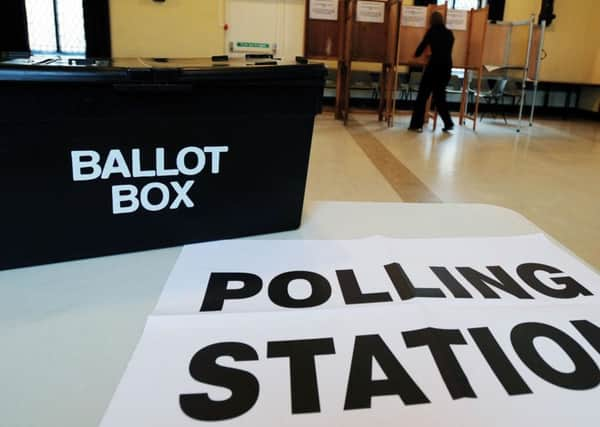David Behrens: The human factor that suggests why election polls are wide of the mark


The reason the pollsters got it so badly wrong last year, on Brexit and on Trump, was that the people they questioned either changed their minds, or were not prepared to own up to their prejudices outside the privacy of the voting booth.
This makes the current crop of polls, which put Theresa May some 20 points ahead of Labour, even less meaningful. With no election on the horizon when they were conducted, the questions were simply hypothetical.
Advertisement
Hide AdAdvertisement
Hide AdThat is not to say they are inaccurate, necessarily; just unreliable.
It isn’t the electorate’s fault. Voters can hardly be blamed for believing a prime minister who said, repeatedly and often, that there would be no election until 2020. That is why her U-turn this week rankles so badly among electors who took her at her word, because they had clung to the hope that the ship had finally been steadied in the wake of Brexit and that Britain might, after all, be a safe harbour in a sea of international tumult.
It was a storm to which I had been alerted last year, at the last possible moment, by the level of activity at my local polling station near Ilkley.
I had sensed that something was up when I arrived at around 8pm to find people waiting in line.
Advertisement
Hide AdAdvertisement
Hide AdIn more than 40 years as a near grown-up, I don’t remember ever having to queue to cast a vote; wherever I have lived, the number of officials and volunteers has exceeded the number of people voting at any given point.
But this time, the village hall was almost as full as it had been for the annual cake and vegetable display the previous September.
I wondered if the nature of the referendum had been misunderstood: perhaps the locals had thought they were voting on whether to remain in the metropolitan county of West Yorkshire or leave for the adjoining and more appealing North Riding. There would have been no doubting the outcome of that.
With nothing to do but wait, I cast a glance over my shoulder at a man emerging from the voting booth with his slip of paper, which he had neglected to fold. He had placed a cross next to the option to leave.
Advertisement
Hide AdAdvertisement
Hide AdIn that moment, I knew the polls were wrong. The village had turned out en masse to secede from Europe.
I will acknowledge that a sample of one person is not scientifically worthwhile, but in attempting to forecast what will happen next month, gut instinct is as valid as science.
With this in mind, I polled another sample of one – my 18-year-old son, who now finds himself voting, unexpectedly, for the first time.
For him and, I suspect, many young people, the choice is individual, not ideological.
Advertisement
Hide AdAdvertisement
Hide AdIrrespective of his views on socialism and capitalism, the election comes down to a personality contest between Theresa May and Jeremy Corbyn, neither of whom he cares for. I’m paraphrasing here.
Whoever was prime minister on June 9 would, he said, do ultimately as he or she pleased, regardless of manifesto, regardless of party principle.
Was he not conflating the electoral system here with the one that put Donald Trump in the White House? Recent history suggests otherwise.
Mrs May’s decision to gamble her career on the impulse of the electorate – just a year after her predecessor had crashed and burned on the same mission – was a move more presidential than prime ministerial, just as Tony Blair’s executive order on Iraq had been. Neither was implicit in anyone’s vote, nor was it for the benefit of anyone outside Westminster.
Advertisement
Hide AdAdvertisement
Hide AdIn this election, as in 1979, 1997 and 2005, people will vote not for what they want but against what they don’t want – whether it is Corbyn and his 1970s-chic rhetoric, or the open door of the EU, or both.
That is an negative British trait but it’s also simple human nature. We don’t know what we will like until we have experienced it; we know only what we dislike.
I do not seriously doubt the current polls in believing that Labour will be embarrassed, perhaps decimated, next month.
But if they are wrong, please don’t say I didn’t warn you.